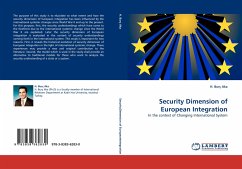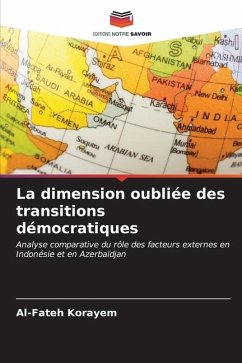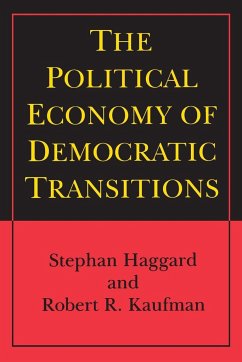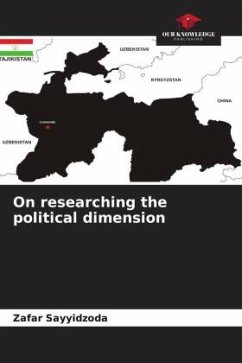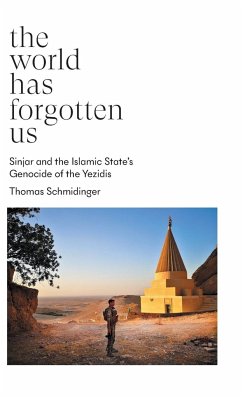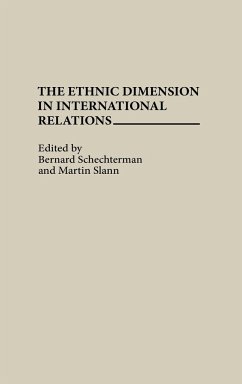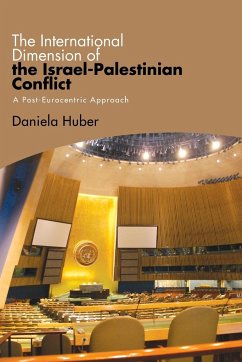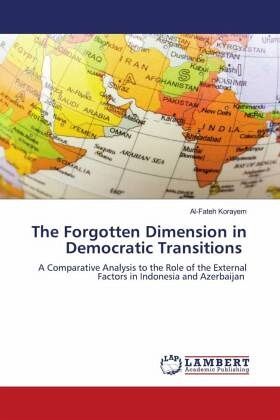
The Forgotten Dimension in Democratic Transitions
A Comparative Analysis to the Role of the External Factors in Indonesia and Azerbaijan
Versandkostenfrei!
Versandfertig in 6-10 Tagen
29,99 €
inkl. MwSt.

PAYBACK Punkte
15 °P sammeln!
This study aims to answer the following question: How do external factors, particularly the global political economy and means of democracy promotion affect democratic transitions? With a special focus on Indonesia and Azerbaijan (1998-2005) and through using Larry Diamond's model of democracy transition, this study argues that external factors play a significant role in the transition (or lack of transition) towards democracy. While in Indonesia, the global political economy increased the vulnerability of Indonesia to the risks of international economic crises, hence leading to the decline in...
This study aims to answer the following question: How do external factors, particularly the global political economy and means of democracy promotion affect democratic transitions? With a special focus on Indonesia and Azerbaijan (1998-2005) and through using Larry Diamond's model of democracy transition, this study argues that external factors play a significant role in the transition (or lack of transition) towards democracy. While in Indonesia, the global political economy increased the vulnerability of Indonesia to the risks of international economic crises, hence leading to the decline in economic growth and eventually undermining the legitimacy of Suharto, in Azerbaijan, Oil played a different role in strengthening international economic relations, improving economic growth and consolidating Ilham Aliyev's regime. Similarly, state actors, non-state actors, international organisations. democratic assistance and democratic diffusion played a key role in promoting democracy inIndonesia while demoting democracy in Azerbaijan.



